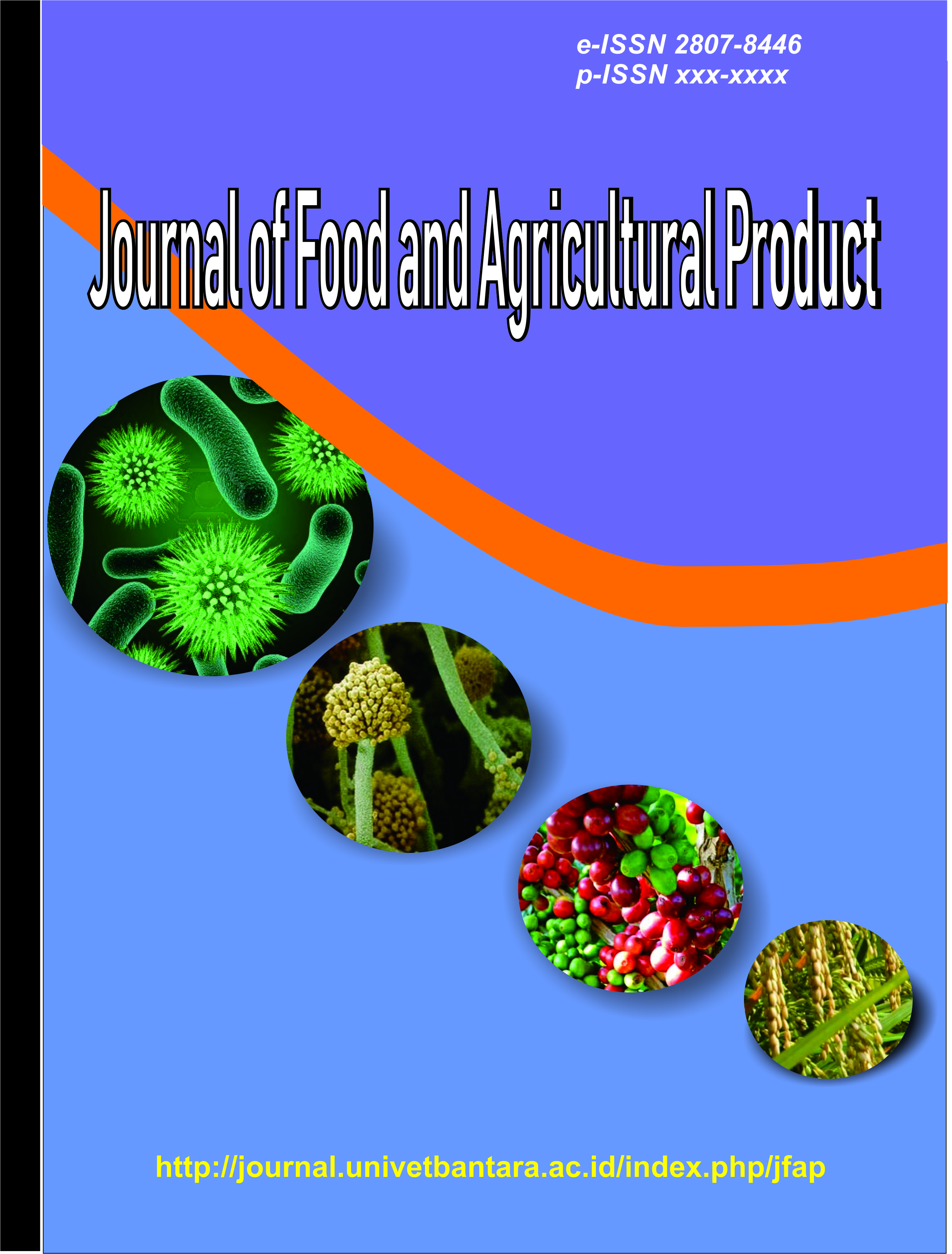Effect of ZnCl2 Concentration as Extraction Medium on The Physical, Chemical Properties and Color Stability of Pandan Leaf Chlorophyll Extract
DOI:
https://doi.org/10.32585/jfap.v5i2.7117Abstract
Chlorophyll in pandanus leaves is easily degraded during processing, resulting in changes in color intensity. Efforts to maintain the color intensity and color stability of chlorophyll involve the formation of chlorophyll complexes with metallochlorophyll using metals that have higher complex stability than natural metals in chlorophyll (Mg) by extraction. This study aimed to produce a stable and effective pandan leaf chlorophyll extract using ZnCl2 extraction media. The phases of the chlorophyll leaf extraction process are leaf washing, cutting, grinding in ZnCl2 solution (0, 500, 750, and 1000 ppm), filtering, and heating with an autoclave at a temperature of 110 °C for 15 minutes. Chlorophyll leaf extracts analyzed ash levels, chlorophyll levels, carotenoid levels, color, and color stability. The experimental design used in this study is a complete random design with one factor. The data obtained was analyzed with One-Anova using IBM SPSS Version 25. The results of the analysis showed that chlorophyll leaf extract produced high chlorophyll levels and the color was most stable at 1000 ppm ZnCl2 concentrations with chlorophyll levels of 125.35 mg/L; ash content of 0.13 g/100 ml; carotene content of 0.40 micromol/L; and green color intensity -2.98. Pandan leaf chlorophyll extract with a ZnCl2 concentration of 1000 ppm has the potential to be used as a natural coloring agent.
Keywords: pandan leaf extract, ZnCl2, chlorophyll, heating, autoclaving
Downloads
Downloads
Published
How to Cite
Issue
Section
License
Copyright (c) 2025 Rindaningsih, Chatarina Lilis Suryani, Yuli Perwita Sari

This work is licensed under a Creative Commons Attribution-NonCommercial-ShareAlike 4.0 International License.



